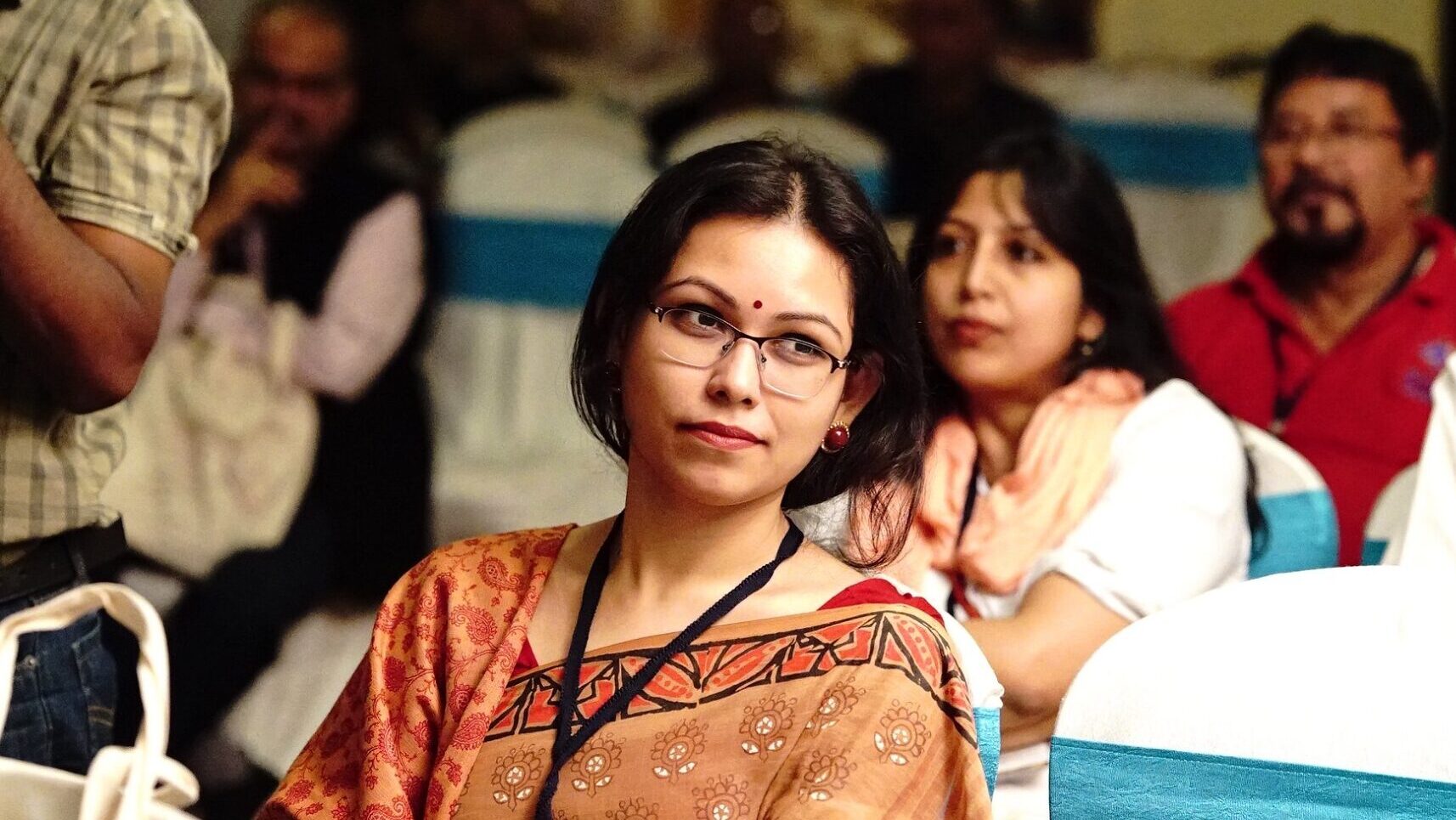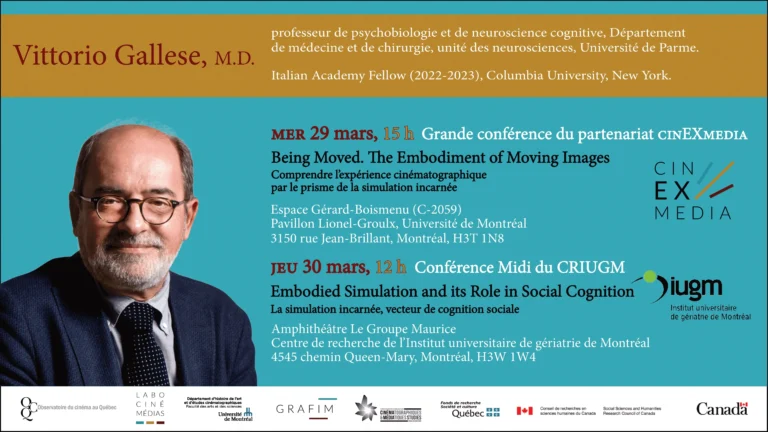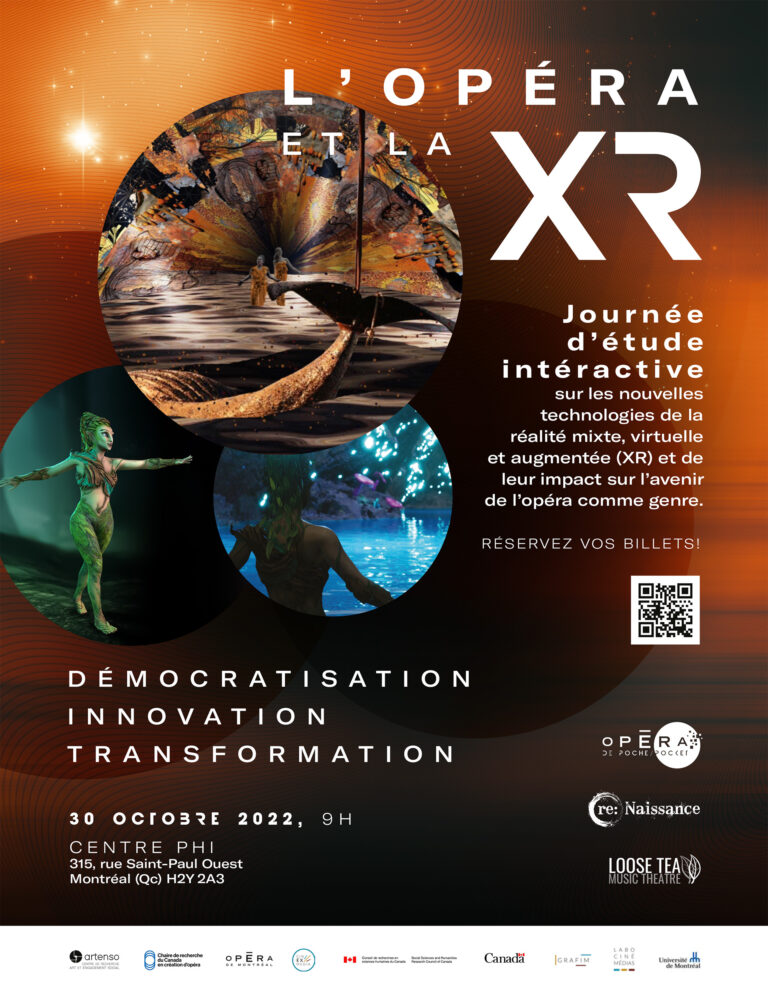The Ph.D. student Tanzia Mobarak’s research project examines the effects of artificial intelligence on rhythm and the brain.

Hugo Samson
As part of her doctoral research, Tanzia Mobarak is analysing the effect of artificial intelligence (AI) editing tools on rhythm in cinema and the effects of editing rhythm on the brain. She spoke with the cinEXmedia team last December to discuss her work and the paths that led her to this project at the intersection of film studies and the neurosciences.
Mobarak’s interest in AI arose in part from her apprehensiveness towards the rapid progress that has been made the past few years in generative models of artificial intelligence. “I began to feel ill at ease about the way these tools were disseminating and gathering users’ information,” she relates.
“AI can accelerate the workflow and inspire or assist us in our creative processes. It is also increasingly accessible. But it is precisely because it is so powerful and accessible that I believe it is crucial to examine the cost of these benefits. We must study how new technological advances affect different aspects of our lives.”
An Attention Deficit
More broadly, Mobarak is interested in the effect of new technologies on our consumption of media, especially audiovisual media. In fact a recent study by the American psychologist Gloria Mark, she relates, has demonstrated that our attention span when looking at a screen has dropped dramatically the past few years, from 150 seconds in 2004 to 47 seconds today.
“At a time when a large part of our work is carried out on screens,” Mobarak remarks, “this constant decline may pose numerous problems in terms of productivity, mental health and cognitive abilities.” In addition, “new studies show that there is a link between this decrease in our attention span and the way in which films are being made today, in particular the way in which they are edited.”
This curiosity for the contamination of cinema by digital technology pushed Mobarak to carry out research supervised by professor André Gaudreault, who has been examining similar questions for several years. Adopting an intersectoral perspective, she is examining both cinema studies and the neurosciences in her dissertation, while keeping in mind the fact that the audiovisual experience is unique for each viewer. This is also why she is thinking about the possibilities offered by editing assisted by artificial intelligence with respect to the diversification and inclusivity of content.
Competition and Profitability
The question of rhythm is closely tied up with that of attention span, Mobarak believes. While the latter has been decreasing for several years, the rhythm of editing in films has been accelerating, in particular because of artificial intelligence. “In order to attract viewers’ attention, commercial films, which today must compete with all sorts of content found on digital platforms, often use rapid and frenetic styles of editing, made popular by the MTV television network, among others.”
Artificial intelligence editing tools can also contribute to a film’s profitability and make it more competitive with the content found on streaming platforms. In fact, these tools “function according to a huge mass of data out of which they are programmed,” Mobarak explains. “So an editing tool will seek to find general principles in a given group of films, running the risk of generalising and normalising certain practices rather than others.”
She continues: “Because these tools have been developed primarily for commercial purposes, it is more probable that they are shaped by super-productions, with the result that they reproduce the frenetic editing style of these films.” And this style is often seen as a guarantee of success.
Whether they are made with the help of artificial intelligence or not, films can also “have therapeutic effects for audiences,” as several studies devoted to cinema’s effects on the brain have shown, Mobarak remarks. “The fact is that carrying out research into films is very liberating for me, because I am doing research which may help people. It’s an extremely gratifying experience.”



